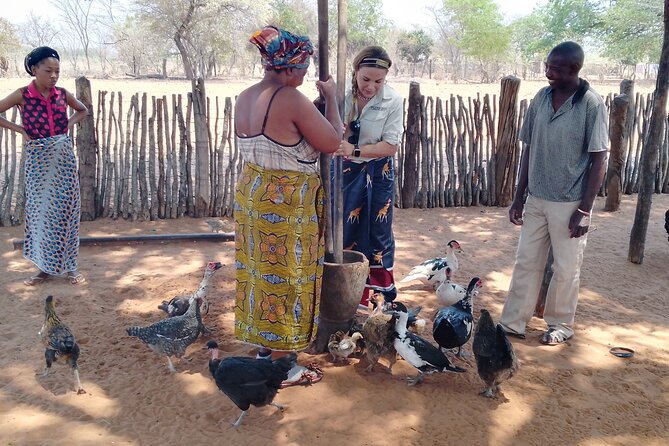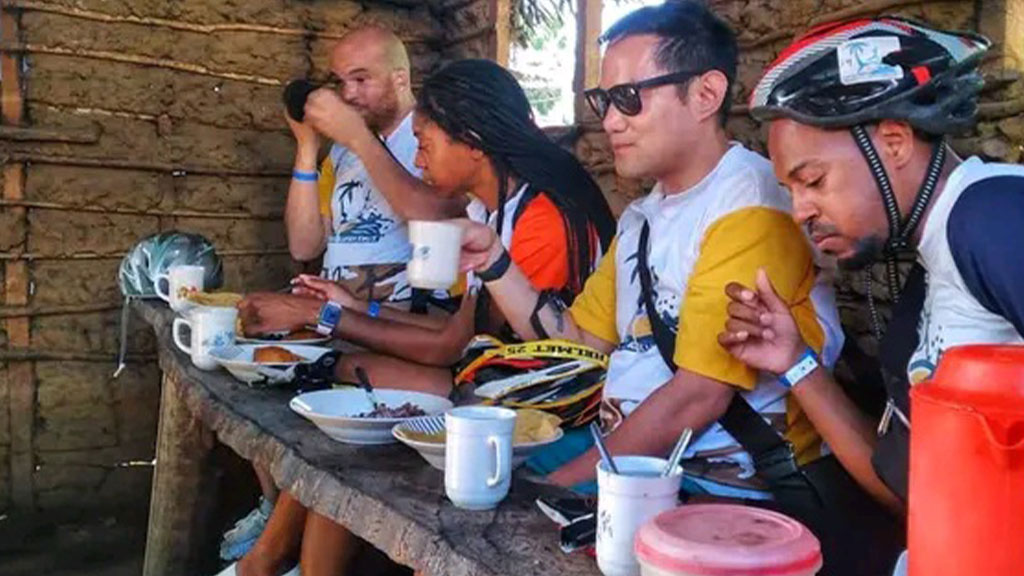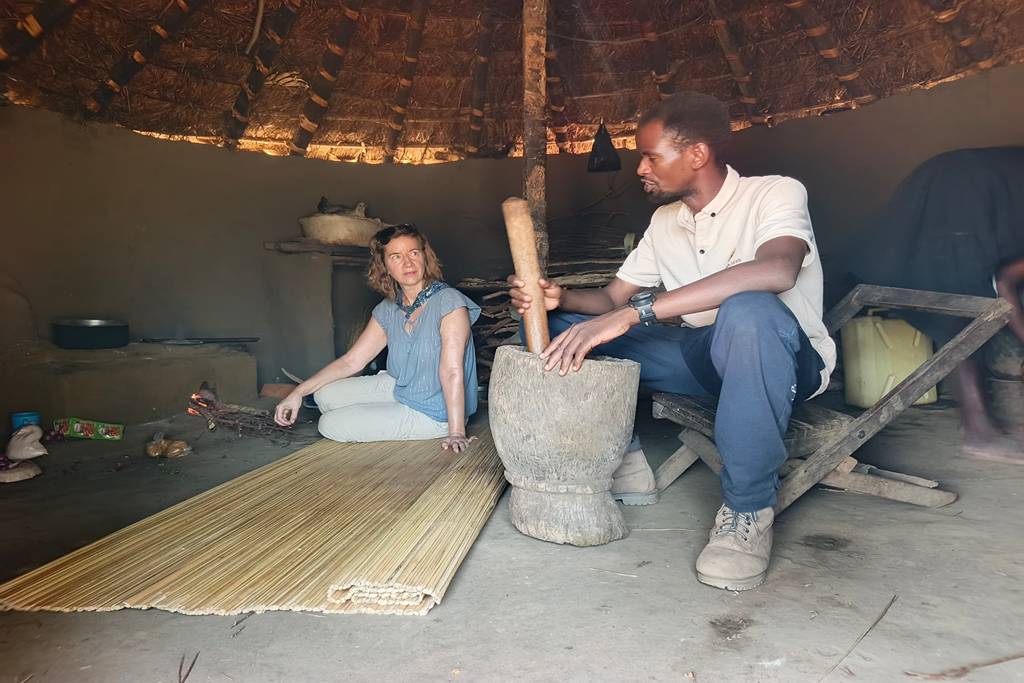African Villages – Real Village Lifestyle | Authentic African Culture and Heritage Tours with WildHorn Africa
There exists a world in Africa that moves to the rhythm of the earth — slow, deliberate, and harmonious. It is a world where the golden sun rises over rolling fields, where smoke curls gently from cooking fires, and where laughter drifts across the morning air as children run barefoot through dusty paths. This world is found not in the modern skylines of African cities or the luxury lodges that dot its national parks, but in the humble, beating heart of the continent — the African village.
To experience real African village lifestyle is to encounter Africa as it has always been: pure, vibrant, and deeply human. It is to step into a life shaped by community, culture, and tradition, where people live in connection with the land and with one another. Every African village tells a story — of ancestors, of faith, of endurance, and of beauty found in simplicity. For travelers who seek authenticity, meaning, and understanding, the African village is not merely a destination — it is an awakening.
The Meaning of the African Village
An African village is far more than a cluster of huts or houses; it is a living ecosystem — a social, cultural, and spiritual network where life unfolds in balance with nature. For centuries, villages have served as the foundation of African civilization, preserving languages, values, and customs that urbanization has yet to erase.
Each village has its own identity, shaped by geography, climate, and tribe. In East Africa, red-robed Maasai herders move gracefully across the savannah, while in the lush highlands of Uganda, Bakiga farmers cultivate steep terraces of banana and coffee. In Southern Africa, Zulu and Xhosa homesteads hum with dance, drumming, and storytelling, while in West Africa, Fulani and Yoruba villages thrive on the strength of extended families and ancient crafts.
The African village is not a relic of the past — it is a living testament to continuity. Though the modern world presses closer each year, village life remains guided by tradition, respect, and rhythm. It is within these simple yet profound communities that Africa’s true heritage resides.
The Rhythm of Daily Life
To step into an African village is to witness a way of life that follows the sun rather than the clock. Dawn awakens the community with a quiet hum of activity. The first rays of light filter through thatched roofs as women kindle fires, the smell of smoke and millet porridge mingling in the air. Children’s laughter echoes as they fetch water or herd goats, and roosters announce the birth of another day.
The morning unfolds with purpose. Men head to fields, forests, or rivers depending on their livelihood — some to farm, others to fish or herd cattle. Women tend to gardens, grind grains, prepare food, and weave baskets. Every task is performed with a quiet grace, its rhythm dictated by generations of practice. Work in the village is rarely solitary; it is a communal act, a shared effort that strengthens bonds and ensures survival.
As the day matures, the heat of the African sun slows the pace. Conversations drift beneath mango trees, and songs rise in the distance — melodies that carry stories, humor, and history. Children learn through imitation, absorbing lessons of life not from textbooks but from the wisdom of elders.
Evenings bring renewal. As the sun melts into the horizon, painting the sky in deep hues of amber and violet, families gather around fires. The night is filled with laughter, stories, and the rhythmic beat of drums. Stars blaze above, untouched by city lights, and the village becomes a constellation of warmth and life beneath the African sky.
Community and the Essence of Belonging
The African village lifestyle is anchored in community. Individual identity is defined not by possessions or achievements but by one’s role in the collective. In these villages, the phrase “I am because we are” — known as Ubuntu in Southern Africa — is not just a philosophy but a lived reality.
Neighbors are more than acquaintances; they are family. When one household rejoices, the entire village celebrates; when hardship strikes, the burden is shared. Food, labor, and laughter are communal resources. This deep interconnectedness is what sustains the African village — a network of trust and mutual support that ensures no one stands alone.
Visitors often find this sense of togetherness deeply moving. It challenges the modern notions of individualism and reminds one that the greatest human strength lies in unity. The African village shows that wealth can exist without material abundance — that true richness is measured in kindness, shared purpose, and belonging.
 Traditions, Rituals, and Cultural Continuity
Traditions, Rituals, and Cultural Continuity
Culture in African villages is not confined to museums or ceremonies — it breathes in everyday life. Rituals mark every stage of existence, from birth to death, ensuring that each moment holds meaning. These traditions, passed through countless generations, form the moral and spiritual compass of African society.
Births are celebrated with songs and blessings, while initiations mark the passage from childhood to adulthood. Marriage ceremonies, often filled with color, dance, and song, unite families and reinforce social harmony. Funerals, though somber, are not purely mournful; they celebrate life and affirm the unbroken link between the living and the ancestors.
Spirituality permeates the African village. The unseen world is never far away. Ancestors are believed to guide and protect, and nature — rivers, trees, animals — carries sacred energy. In many communities, traditional healers and elders serve as intermediaries between the spiritual and physical realms, their wisdom respected by all.
Travelers fortunate enough to witness these ceremonies find themselves deeply transformed. They discover a worldview that sees life as cyclical and interconnected — where every gesture, every song, every dance holds spiritual resonance.
The Role of Women in Village Life
In the story of the real African village lifestyle, women are its heartbeat. They carry the community — both literally and symbolically — on their shoulders. From dawn till dusk, their work shapes the rhythm of daily existence. They cultivate fields, fetch water, prepare food, weave crafts, and raise children, all while maintaining the emotional harmony of the household.
Yet beyond their labor lies a deeper power. Women are the keepers of culture — the storytellers, singers, and teachers. Through lullabies and tales, they transmit moral lessons and ancestral knowledge. In many villages, women lead cooperatives that sustain local economies, crafting textiles, pottery, and jewelry that reflect beauty born of heritage.
Their grace, resilience, and strength are unmistakable. Visitors often speak of the inspiration drawn from African women — how they move through challenges with quiet dignity, their laughter a song of defiance and hope. To understand village life, one must first understand its women; they are, in essence, the custodians of Africa’s continuity.
Hospitality and the Spirit of Ubuntu
Hospitality in African villages is legendary. To be a guest is to be family. The tradition of Ubuntu — meaning humanity toward others — governs every act of kindness, ensuring that visitors are welcomed not as outsiders but as kin.
Upon arrival, travelers are often greeted with song, dance, or symbolic offerings. It may be a calabash of water, a bowl of fruit, or simply a warm handshake — each gesture steeped in respect. Meals are shared freely, regardless of wealth, and stories flow easily between host and guest.
Dining in a village is an experience of connection. Food is prepared with care and served communally, reflecting the belief that sharing sustains the soul. Simple dishes of maize, beans, cassava, or vegetables, seasoned with local spices, carry flavors that speak of both land and love.
For many travelers, this hospitality becomes the most memorable part of their journey. It reveals an Africa that is open, generous, and deeply human — a place where warmth resides not in luxury but in spirit.
Art, Dance, and Music: The Language of the Soul
In the villages of Africa, art is not confined to galleries, and music is not performed on stages. Both are woven into the fabric of daily life. Every gesture, every rhythm, and every song carries purpose and emotion.
Dance is a language of expression — a celebration of life, fertility, harvest, or victory. The beat of the drum is its heartbeat, guiding movements that are both physical and spiritual. In many communities, each dance holds significance, with rhythms passed down through generations.
Music accompanies every event — from lullabies sung at night to communal celebrations. Instruments such as drums, marimbas, flutes, and rattles are crafted by hand and played with unmatched passion. The sounds rise and fall like the wind over the savannah, carrying stories that words alone cannot convey.
Artistry flourishes in form and function. Beads, masks, pottery, and textiles are created not for vanity but for meaning. Colors symbolize emotions or status; patterns tell tales of lineage or faith. When visitors purchase or observe these crafts, they are not simply admiring beauty — they are witnessing centuries of heritage preserved in form.
Education and the Promise of the Future
Education in African villages is a bridge between tradition and transformation. It is viewed as both a gift and a responsibility. Though resources may be limited, the desire for learning runs deep. Schools, often built through collective effort, stand as symbols of hope.
Children walk miles to attend classes, their curiosity undimmed by distance or difficulty. Lessons are conducted in open-air classrooms or under trees, where teachers — often heroes in their own right — impart not only academic knowledge but also values of respect and integrity.
Education, however, extends beyond formal schooling. Storytelling, apprenticeship, and community gatherings continue to play vital roles in passing on skills and wisdom. Elders ensure that while the young learn about the wider world, they never forget the roots that ground them.
For visitors, interacting with students and teachers provides a humbling experience — a glimpse of Africa’s next generation, poised to blend heritage with progress, tradition with innovation.
 Sustainability and Responsible Tourism
Sustainability and Responsible Tourism
As more travelers seek authentic cultural encounters, the rise of village tourism has brought both opportunity and responsibility. When done ethically, it becomes a force for empowerment — preserving culture while improving livelihoods.
Sustainable tourism practices ensure that communities directly benefit from visits. Local guides, artisans, and farmers participate in shaping experiences, allowing travelers to engage meaningfully. This approach helps protect cultural integrity, ensuring that traditions are shared respectfully, not commercialized.
Tour operators like WildHorn Africa champion this model by partnering with communities to promote responsible travel. Visitors are encouraged to observe with sensitivity — asking before photographing, honoring customs, and purchasing local products that sustain village economies.
In this balance of respect and curiosity, tourism becomes more than observation; it becomes exchange. Travelers leave enriched with understanding, while villages gain resources and pride in their heritage.
The Transformative Power of Real African Village Life
The real African village lifestyle teaches lessons that linger long after one leaves. It reminds travelers of humanity’s shared origins — of a time when people lived in rhythm with the land, dependent on each other and guided by respect for nature.
To experience such a life is to rediscover the essence of being human. One learns that happiness is found not in abundance but in gratitude, that progress means nothing without identity, and that community is the foundation of peace.
The African village does not seek to impress; it invites reflection. It shows that dignity and wisdom can thrive amidst simplicity, and that joy can exist without luxury. It is a world where every sunrise feels like a new beginning and every handshake feels like a homecoming.
For many, this encounter becomes a turning point — a journey inward as much as outward. It is a reminder that beyond technology, beyond ambition, lies something eternal: the human spirit in its purest form.
Discover the Real Africa with WildHorn Africa
To explore African villages is to walk into the living soul of Africa. It is to see a continent through the eyes of its people — those who carry its traditions, dreams, and stories in their hearts. It is a journey that goes beyond travel, beyond adventure, into something timeless and true.
When you experience real African village lifestyle, you do not just visit; you connect. You share meals, songs, and smiles. You listen to stories told by firelight, and you begin to understand that Africa’s greatest treasure is its people — strong, kind, and enduring.
Let the road lead you to the villages where time slows, where hearts open, and where every moment feels like a return to something ancient and sacred.
Book your next African tour and cultural safari with WildHorn Africa, and let the authenticity of Africa’s villages transform your journey into a story you will carry forever.









